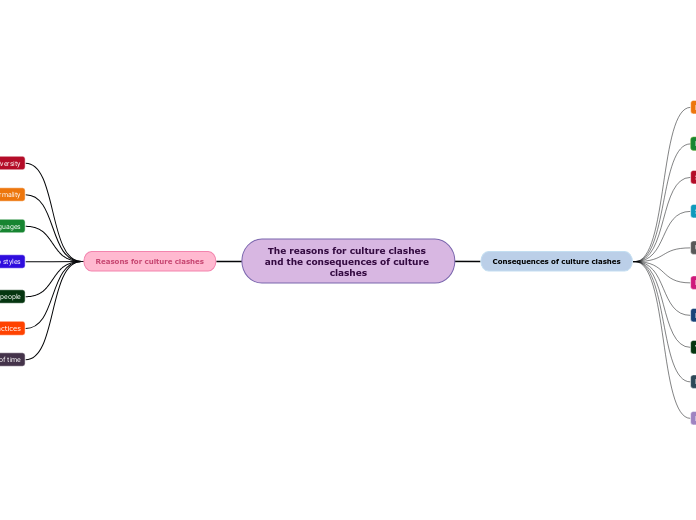The reasons for culture clashes and the consequences of culture clashes
Consequences of culture clashes
Lack of focus
Employees may not understand the values and goals of the new organization.
Preoccupation with the merger
Employees focus their attention
and energy about the fact of fusion rather
focus on their own work.
Sense of division
Employees focus on the differences between
employees of the merging companies instead of in their
common purpose and its many similarities.
Sense of isolation
Managers focus on the strategy of the
new organization and the employees feel isolated and ignorant.
Unresponsive management
Employees feel that managers
are not concerned with their welfare.
Lower productivity
Lack of familiarity with rules and procedures.
Higher labour turnover
Increased labor turnover is especially problematic when the main purpose of the merger was to form more capital
human.
Various types of conflict in the workplace
Differences between cultures are likely to increase conflict.
Decreased profitability
Workers are less productive and conflict in the workplace increases.
Bankruptcy or failure
Bankruptcy or receivership - if the problems of a merger are severe enough, the organization may be at risk of bankruptcy or failure.
Reasons for culture clashes
Different comfort levels with diversity
Diversity or ethnocentric
Different degrees of formality
Formal or informal
Different languages
Verbal and Verbal and non-verbal communication
Different leadership styles
Autocratic, democratic, partenalistic, laissez - faire and situational
Different orientations to tasks and to people
Task-oriented or relationship-oriented
Different practices
Different countries or cultures
Different senses of time
Fixed time and or a more fluid sense of time.
